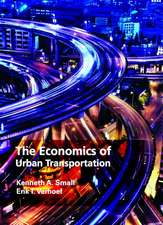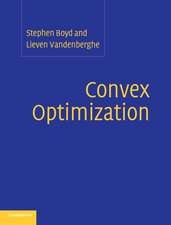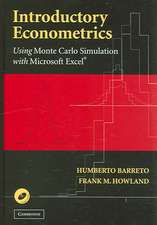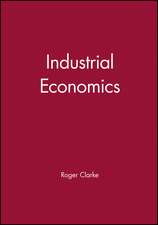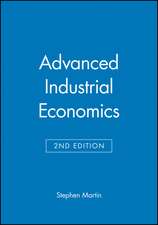Money as a Global Phenomenon: Quantitative Ökonomie, Bd. 167
Autor Andreas Reesen Limba Engleză Paperback – 8 sep 2011
Preț: 372.49 lei
Nou
Puncte Express: 559
Preț estimativ în valută:
71.28€ • 74.57$ • 59.21£
71.28€ • 74.57$ • 59.21£
Carte tipărită la comandă
Livrare economică 29 martie-04 aprilie
Preluare comenzi: 021 569.72.76
Specificații
ISBN-13: 9783844100761
ISBN-10: 3844100768
Pagini: 308
Dimensiuni: 148 x 210 x 20 mm
Greutate: 0.45 kg
Editura: Josef Eul Verlag GmbH
Colecția Quantitative Ökonomie, Bd. 167
Seria Quantitative Ökonomie, Bd. 167
ISBN-10: 3844100768
Pagini: 308
Dimensiuni: 148 x 210 x 20 mm
Greutate: 0.45 kg
Editura: Josef Eul Verlag GmbH
Colecția Quantitative Ökonomie, Bd. 167
Seria Quantitative Ökonomie, Bd. 167
Cuprins
1. Introduction2. Theoretical Aspects2.1 International Monetary Spillover Effects2.2 Asymmetric Central Bank Behavior and Inflation Bias3. Literature Review of Empirical Studies4. Hypotheses for Empirical Examination5. Data and Variables6. A Global Money Factor6.1 Factor Analysis6.2 Granger Causality Tests 6.3 Structural Breaks 7. International Transmission in Structural Models7.1 Open Economy VARs7.2 A Global SFAVAR7.3 Inflation Bias of Monetary Policy8. Summary of Empirical Results9. Policy Implications10. Conclusions
Notă biografică
Andreas Rees is the Chief German Economist at UniCredit in Munich. He works in the macro research department, focusing on a wide range of business-cycle and economic-policy related topics. Previously, he analyzed bond and FX markets and developed quantitative models for forecasting purposes at HypoVereinsbank. The author holds a Master¿s degree in economics from the University of Trier.

